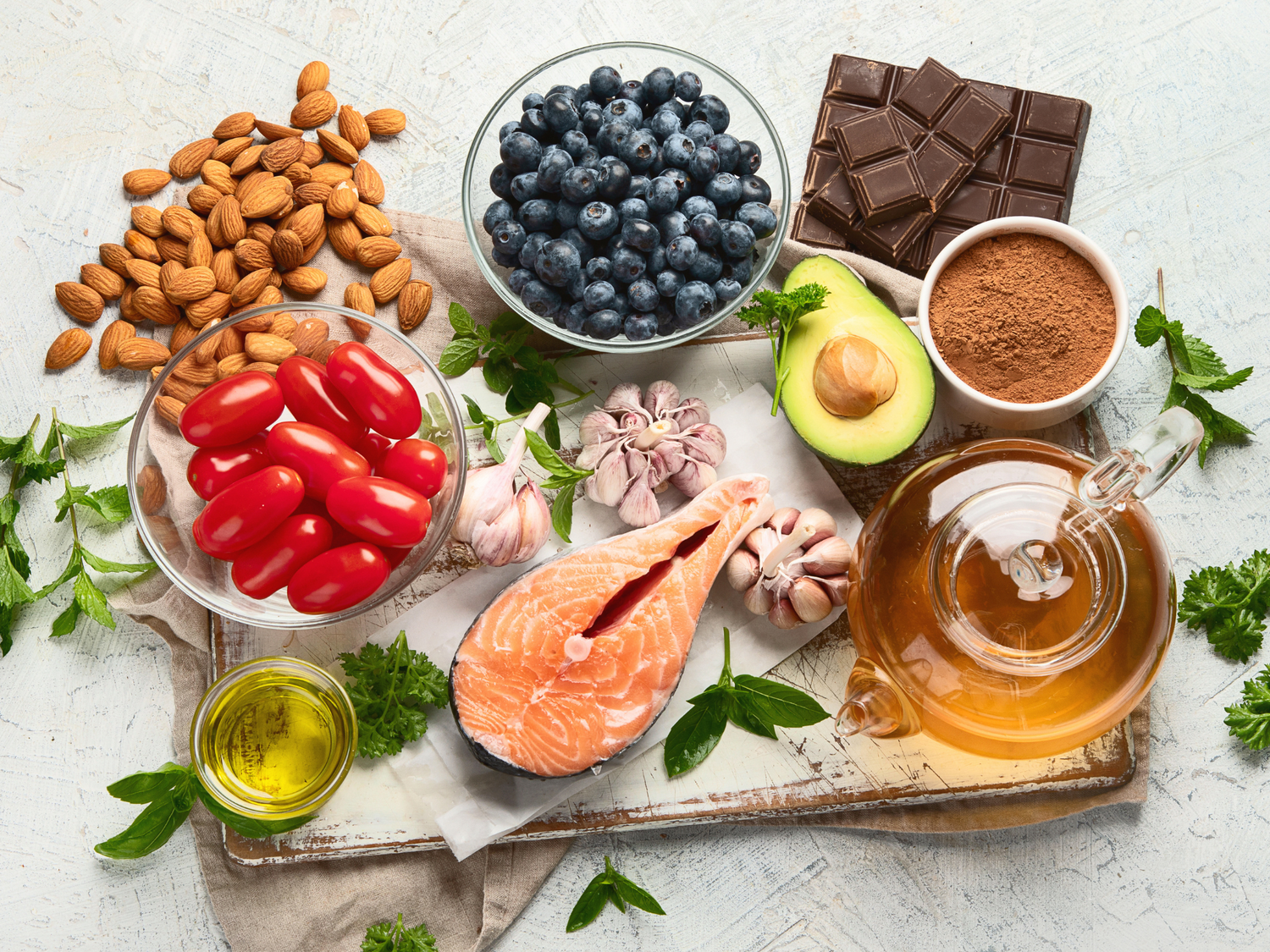Inflammation is a natural process by which your body responds to injuries or infections. However, when inflammation becomes chronic, it can contribute to serious health conditions such as heart disease, cancer, diabetes, and arthritis. But the good news is that you can take steps to manage and reduce chronic inflammation through your diet.
In this blog, we'll introduce you to the top 5 anti-inflammatory foods that you can add to your diet: fatty fish, berries, leafy green vegetables, spices and herbs, and nuts and seeds. These aren't just flavorful additions to your meals; they're your allies in the fight against inflammation. By understanding the unique benefits of each of these foods, you can make informed choices to enhance your overall well-being. Let’s dive in and discover how they can be an integral part of your health-conscious lifestyle.
Fatty Fish
Fatty fish, including salmon, mackerel, and sardines, are nutritional powerhouses thanks to their high omega-3 fatty acid content. Omega-3s, particularly DHA and EPA, do an impressive job of quelling inflammation in the body by slowing down the production of inflammatory molecules like cytokines and prostaglandins. As a result, incorporating fatty fish into your diet at least twice a week can be a game-changer in the fight against chronic inflammation. Plus, you'll enjoy the added benefits of reduced blood pressure and a lowered risk of heart disease. Whether it's a succulent salmon filet or a plate of mackerel, these flavorful anti-inflammatory champions deserve a spot on your dinner table.
Berries
Berries are not only incredibly delicious but also nutritional powerhouses in the fight against inflammation. Packed with a myriad of antioxidants and polyphenols, these vibrant fruits take center stage in reducing inflammation levels within the body. Their vibrant colors, attributed to compounds like anthocyanins, offer more than just visual appeal; they also possess anti-inflammatory properties! Additionally, these superfoods are rich in vitamin C, an essential nutrient for collagen synthesis and effective wound healing. In a nutshell, blueberries, strawberries, raspberries, and blackberries are your trusted allies in the battle against inflammation, all the while promoting your overall health and well-being.
Leafy Green Vegetables
Leafy green vegetables, including spinach, kale, and collard greens, are also nutritional powerhouses. They're packed with a plethora of essential vitamins, minerals, and antioxidants that contribute to their anti-inflammatory properties. Among these antioxidants, flavonoids shine for their potent anti-inflammatory effects. These greens are not only easy to prepare but also versatile additions to your diet. Whether you toss them in a salad, blend them into a smoothie, or sauté them as a side dish, incorporating a cup or two of these leafy greens into your daily meals is a simple and effective way to reduce inflammation and support overall wellness.
Spices and herbs
Turmeric, ginger, garlic, and cinnamon are just a few examples of anti-inflammatory spices that have been used for centuries to manage inflammation. These readily accessible spices and herbs can effectively suppress inflammatory cytokines in the body. Compounds like curcumin, gingerol, and allicin found in these herbal remedies possess potent anti-inflammatory properties. You can easily incorporate these spices and herbs into your diet by adding them to tea, soups, stews, marinades, or even as a sprinkle on baked goods.
Nuts and Seeds
Nuts and seeds, such as almonds, walnuts, and chia seeds, are nutritional powerhouses. They are rich in healthy fats, fiber, and vitamins that help reduce inflammation. In addition, they contain phytosterols, known for their anti-inflammatory properties and benefits for heart health. These superfoods also boast an abundance of antioxidants, particularly in almonds, walnuts, and flax seeds, thanks to inflammation-fighting nutrients like vitamin E and omega-3 fatty acids. Incorporating nuts and seeds into your diet is very easy – sprinkle them on your oatmeal, add them to salads for an extra crunch, or enjoy them as a wholesome snack!
Incorporating anti-inflammatory foods into your diet is a natural and effective approach to managing chronic inflammation and supporting overall well-being. By embracing a balanced diet that includes fatty fish, berries, leafy green vegetables, spices and herbs, and nuts and seeds, you're providing your body with the essential nutrients it needs to combat inflammation. You can start with small, manageable changes, like swapping processed snacks for nutrient-rich nuts or incorporating more fruits and vegetables into your daily meals. It's important to remember that prioritizing your health today is an investment in a healthier future, where inflammation doesn't lead to long-term health issues.





Leave a comment
This site is protected by hCaptcha and the hCaptcha Privacy Policy and Terms of Service apply.